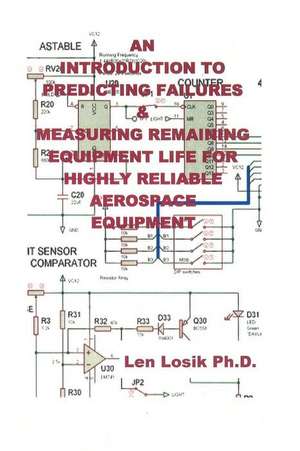An Introduction to Predicting Failures on Highly Reliable Aerospace Equipment
Autor Len Losik Ph. D.en Limba Engleză Paperback
Preț: 452.91 lei
Nou
Puncte Express: 679
Preț estimativ în valută:
86.68€ • 90.16$ • 71.56£
86.68€ • 90.16$ • 71.56£
Carte indisponibilă temporar
Doresc să fiu notificat când acest titlu va fi disponibil:
Se trimite...
Preluare comenzi: 021 569.72.76
Specificații
ISBN-13: 9781542328876
ISBN-10: 154232887X
Pagini: 340
Dimensiuni: 152 x 229 x 22 mm
Greutate: 0.63 kg
ISBN-10: 154232887X
Pagini: 340
Dimensiuni: 152 x 229 x 22 mm
Greutate: 0.63 kg
